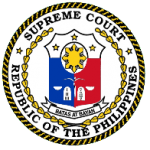Share it
The identity of the next Chief Justice of the Supreme Court of the Philippines remains unclear two weeks after the dismissal of Renato Corona as Chief Justice at the end of last month.
The trial of Renato Corona, which started in January of this year, was televised in the Philippines and the country’s residents watched intently as the proceedings unfolded. The ex Chief Justice was subject to corruption charges, and the Senate, sitting as an impeachment Court, turned their debating chambers into a Court room where the case was heard.
23 senators (a number of whom were film stars and television personalities in a past life) judged the case, which had some very dramatic moments. Renato Corona’s own testimony consisted of a three hour monologue and a powerpoint presentation, and it also saw him break down into tears and walk out of the chamber (returning an hour later in a wheelchair).
The end of the trial saw the Court hand down its first verdict of conviction: never before has this happened in the Supreme Court of the Philippines. 20 of the 3 Senators hearing the case found him guilty of failing to disclose to the public his statement of assets, liabilities, and net worth as required under the Philippine Constitution which the majority of the Senate decided, was a violation of the 1987 Philippine Constitution. A guilty verdict requires 16 Senators.
The consequence of the Court’s finding was Renato Corona’s dismissal from office. This has been seen by many as a victory for President Aquino and his anti-corruption campaign, although some have criticised the verdict as being based on political, rather than legal, considerations.
In any event, Renato Corona returned to the Supreme Court to collect his belongings on 4 June, and Justice Antonio Carpio has been appointed as acting Chief Justice, but President Aquino has been reported as saying that he is in “no rush” to appoint a permanent replacement.
Following the dismissal of Renato Corona, it has been reported that the House of Representatives has formed a committee to produce guidelines for the disclosure of assets, liabilities and net worth by public officials.



